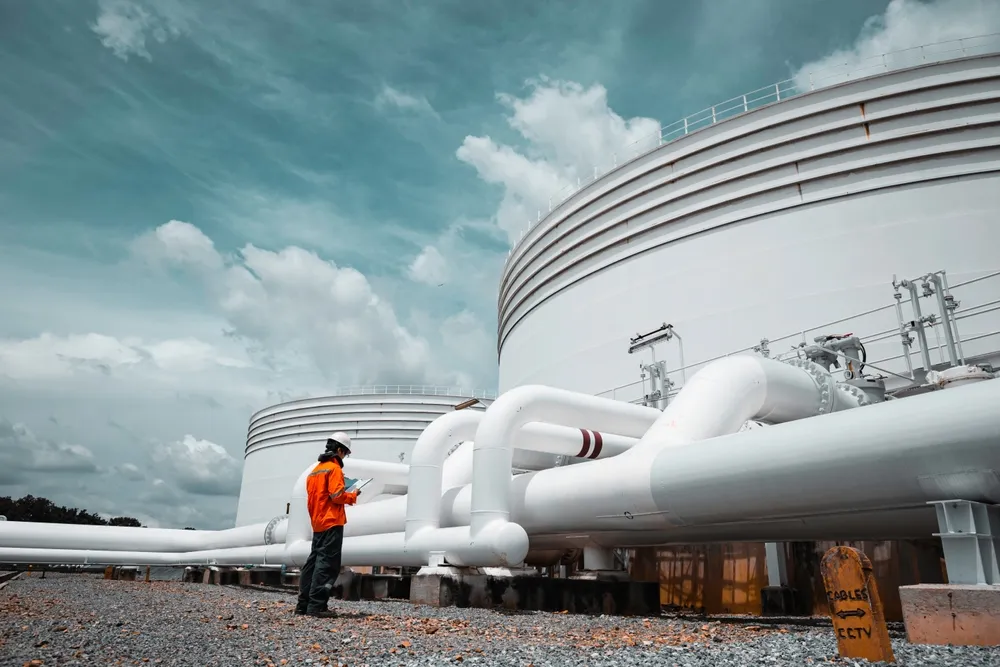Introduction:
Process engineering is central to the chemical, oil and gas, and petrochemical industries. The Basics of Process and Mechanical Technology course is multidisciplinary, emphasizing mechanical engineering technology while also addressing electrical and instrumentation engineering.
The course focuses on the movement and transformation of solids, liquids, and gases, with a particular emphasis on separation processes such as distillation, heat and mass transfer, hydraulics, fluid flow, and reaction engineering. It also covers process control to enhance operational efficiency.
Mechanical engineers focus on the safe storage and movement of materials under extreme temperatures and pressures. They handle failure analysis (fracture, fatigue, and creep), corrosion prevention, material characterization, design codes, static and dynamic equipment design, inspection, and repair. This course integrates mechanical engineering principles to support process engineers in maintaining the integrity and performance of essential machinery.
This course provides foundational knowledge in process and mechanical technology for professionals in maintenance, production, and design roles in the chemical, oil, gas, and petrochemical industries. By combining principles from electrical and instrumentation technology with mechanical engineering.
Objectives:
By the end of this Basics of Process and Mechanical Technology program, participants will be able to:
- Demonstrate practical skills in process and mechanical engineering as applied in relevant industries.
- Apply fundamental principles to separation, heat exchange, and reaction units.
- Operate static and rotating mechanical systems, including condition monitoring and equipment inspection.
- Understand mechanical testing methods, failure analysis, NDT, and corrosion protection.
- Perform calculations and analyses for the operation, sizing, and troubleshooting of chemical and mechanical processes.
Training Methodology:
- Workshops
- Group Discussions
- Simulations
- Equipment Demonstrations
- Interactive Sessions
- Assessment and Feedback
Course Outline:
Unit 1: Introduction and Fundamentals of Process Engineering
- Basic concepts of process engineering
- Mass and energy balances
- Batch and continuous processes
- Types of reactors
- Process flow diagrams and equipment
- Process and instrumentation diagrams
- Fire hazard and electrical area classifications
- Risk analysis and hazard assessment
- Hydraulics and fluid dynamics
- Basic principles of process relief devices and pressure vessel design
- Compressors and blenders
Unit 2: Heat Transfer and Reaction Engineering
- Heat transfer principles
- Coefficients of heat conduction and convection
- Thermal insulation
- Heat transfer computation
- Catalytic reactors and design
- Chemical reactions and kinetics
- Principles of catalysis
- Design and management of reactors
Unit 3: Processes and Equipment of Distillation
- Theory of distillation
- Vapor and liquid phase behavior
- Apparatus for distillation (columns and vessels)
- Design and operation of reactors
Unit 4: Separation Processes and Equipment
- Absorption and adsorption
- Sweetening with amines
- Separation of solid from liquid
- Waste water treatment in refining and petrochemical industries
Unit 5: Process Control and Economics
- System and process control
- Types of control systems
- Economical aspects of the process
- Fixed and variable expenses, break-even analysis
- Raw materials usage
- Equipment and plant cost assessment
Unit 6: Introduction to Miscellaneous Applications of Mechanical Engineering
- Properties of engineering materials
- Tension, compression, fracture failure, and fatigue
- Temperature effects and creep failure
- Design engineering and standards
Unit 7: Materials Selection and Inspection
- Materials for construction
- Inspection methods: vision, dye penetrant, magnetic particle, eddy current, ray/gamma ray, ultrasound
- Materials selection for construction
Unit 8: Valves, Piping, and Fitness for Service
- Classification and types of valves
- Valve applications and selection
- Piping systems and materials
- ASME B31 codes
- Gaskets, flanges, and pipe supports
- API standards and pipe structural adequacy
Unit 9: Corrosion
- Fundamentals of corrosion
- Forms of corrosion and management
- Corrosion prevention methods
- Coatings and inhibitors
- Cathodic protection
Unit 10: Compressors
- Types of compressors: reciprocating, centrifugal, screw
- Performance curves and equipment
- Compressors' use and instruments
- Glands and mechanical seals
Unit 11: Mechanical Maintenance
- Operating strategies and philosophies
- Maintenance process optimization
- Management systems for maintenance operations
- Condition monitoring, vibration analysis, and shaft alignment


















